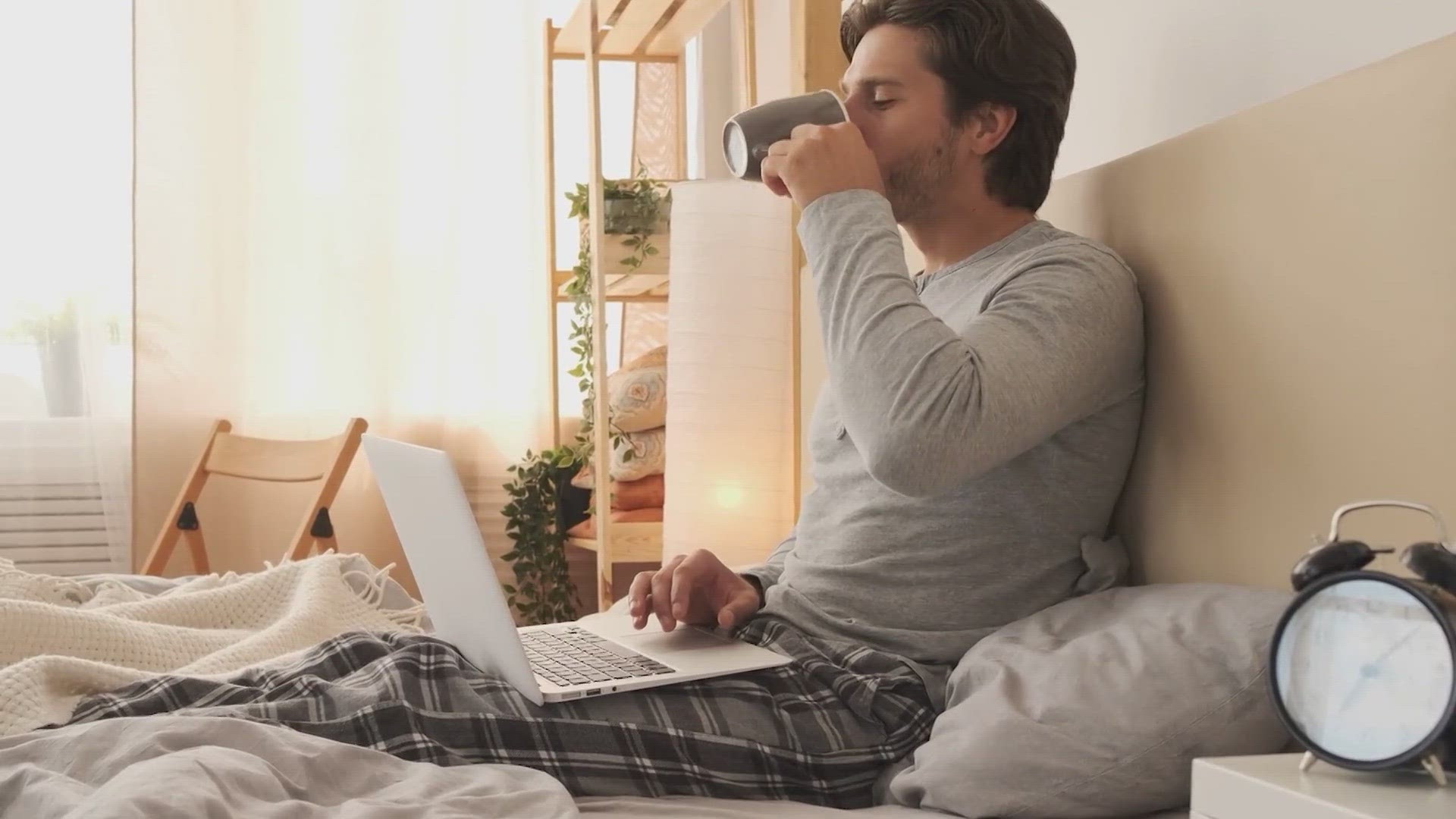SAN ANTONIO — Ever since the coronavirus pandemic, working from home has become normalized. But working from home can also lead to a very bad habit called bed rotting. This new trend encourages people to stay in bed for passive activities, but that can spill over into work.
"I'm not one to, like, get up and get ready every single day. But I need my screens. I need my monitors. I need my set up," said Caroline Wharry, who works in marketing from home a few days a week.
Wharry said working from home is a new type of lifestyle, but bed rotting sounds somewhat lazy and uncomfortable.
"I take my meetings, and when I'm on meetings, I try to have my camera on. So, I do not understand how they're doing all of that from their bed," Wharry said.
Elise Vader, a physician's assistant and sleep specialist with University Hospital, said people could also develop insomnia.
"For general health. We know that being active and moving is important for the body, for your mood, for your muscle health, for your heart health," Vader said.
A Sleep Doctor survey found about six out of 10 remote and hybrid workers say they bed rot during work hours. Four out of every 10 men say they are more likely to bed rot compared to just two out of every 10 women. And four out of every 10 bed rotters say they were influenced to do it because they heard about it from others.
"The No. 1 thing is when it comes to what we call sleep hygiene, which is like the best way to get the most healthy sleep, you know, keeping your room cool, dark and quiet, staying away from screens. This kind of goes against that," said Marten Carlson, a sleep science coach.
About 40% of bed rotters say they spend one to two hours working from their bed, and about half of those bed rotters say they spend at least half of their day in bed.
"When we think about sleep, especially when you're doing activities in bed, you're training your brain that the bed is for being awake and active," said Dr. Kristi Pruiksma, an assistant professor in the Department of Psychiatry and Behavioral Sciences at UT Health San Antonio.
She advised that the bed should be used for sleep and intimacy only.
TRENDING:
> MORE ON KENS

